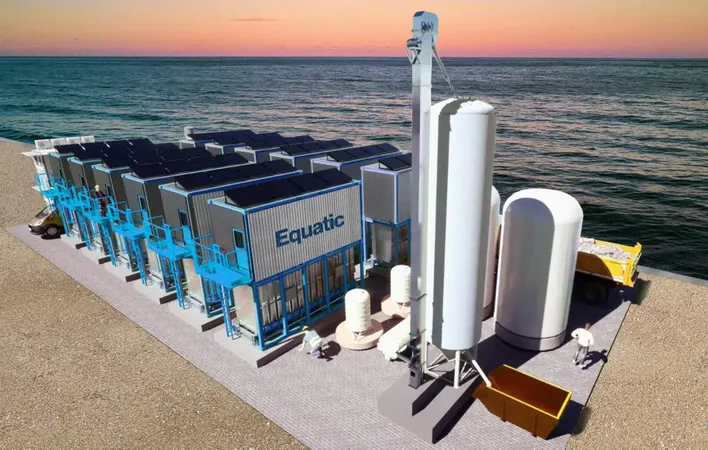
Game-Changer for Cancer Treatment: Bevacizumab Biosimilars Slash Costs and Preserve Patient Outcomes in Metastatic Colorectal Cancer!
2025-04-02
Author: Noah
Introduction
A groundbreaking study conducted in Ontario, Canada, reveals that the use of bevacizumab biosimilars—specifically Mvasi and Zirabev—can significantly reduce treatment costs for patients with metastatic colorectal cancer (mCRC) while achieving comparable survival outcomes to the original medication, Avastin.
Study Overview
This analysis, which looked at real-world data from a retrospective cohort study, highlights that prescribing these biosimilars as first-line treatments yields substantial cost savings without compromising patients’ life quality. Patients treated with Mvasi and Zirabev saved an impressive average of $6379 CAD over the course of one year, which is crucial given the rising economic burden of cancer therapies fueled by expensive biologic drugs.
Cost-Effectiveness and Savings
Not only were the two biosimilars shown to be cost-effective at typical industry standards, but the savings also point strongly towards the potential role of biosimilars in enhancing the sustainability of healthcare systems worldwide. The researchers emphasized that the economic feasibility of Mvasi and Zirabev makes a compelling case for their integration into treatment protocols, especially since traditional biologics like Avastin have been scrutinized for their cost-effectiveness at current price points.
Patient and Financial Analysis
The study involved a comparison between 742 patients who were treated with biosimilars and a control group of 2945 patients who received Avastin. Remarkably, 86% of the biosimilar group utilized Mvasi, while 15% opted for Zirabev. The financial breakdown revealed that biosimilar treatments averaged $84,162 per patient compared to $90,541 for the original product, with no significant difference in life years or quality-adjusted life years (QALYs) between the two groups.
Incremental Benefits
The financial analysis also indicated a robust incremental net monetary benefit of $6331 and an incremental net health benefit of 0.127 life years at a willingness-to-pay threshold of $50,000 for each additional year of life gained. These results were consistently echoed across all assessed thresholds of $100,000, $150,000, and $200,000, affirming the biosimilars’ cost-effectiveness in various scenarios.
Policy Implications
The findings strongly support Ontario’s ongoing policy to mandate the use of biosimilars in mCRC treatment. The authors believe that this research can serve as a pivotal resource for guiding policy decisions in Canada and beyond, as it provides concrete evidence of the benefits and savings associated with biosimilars. "Decision-makers can trust the data indicating not only significant cost savings but also the efficacy of biosimilars in promoting the efficiency and sustainability of healthcare," they stated.
Conclusion
Overall, this study could mark a turning point in the treatment of metastatic colorectal cancer, illustrating a future where effective cancer care is not just accessible, but also more affordable for patients and healthcare systems alike!









 Brasil (PT)
Brasil (PT)
 Canada (EN)
Canada (EN)
 Chile (ES)
Chile (ES)
 Česko (CS)
Česko (CS)
 대한민국 (KO)
대한민국 (KO)
 España (ES)
España (ES)
 France (FR)
France (FR)
 Hong Kong (EN)
Hong Kong (EN)
 Italia (IT)
Italia (IT)
 日本 (JA)
日本 (JA)
 Magyarország (HU)
Magyarország (HU)
 Norge (NO)
Norge (NO)
 Polska (PL)
Polska (PL)
 Schweiz (DE)
Schweiz (DE)
 Singapore (EN)
Singapore (EN)
 Sverige (SV)
Sverige (SV)
 Suomi (FI)
Suomi (FI)
 Türkiye (TR)
Türkiye (TR)
 الإمارات العربية المتحدة (AR)
الإمارات العربية المتحدة (AR)